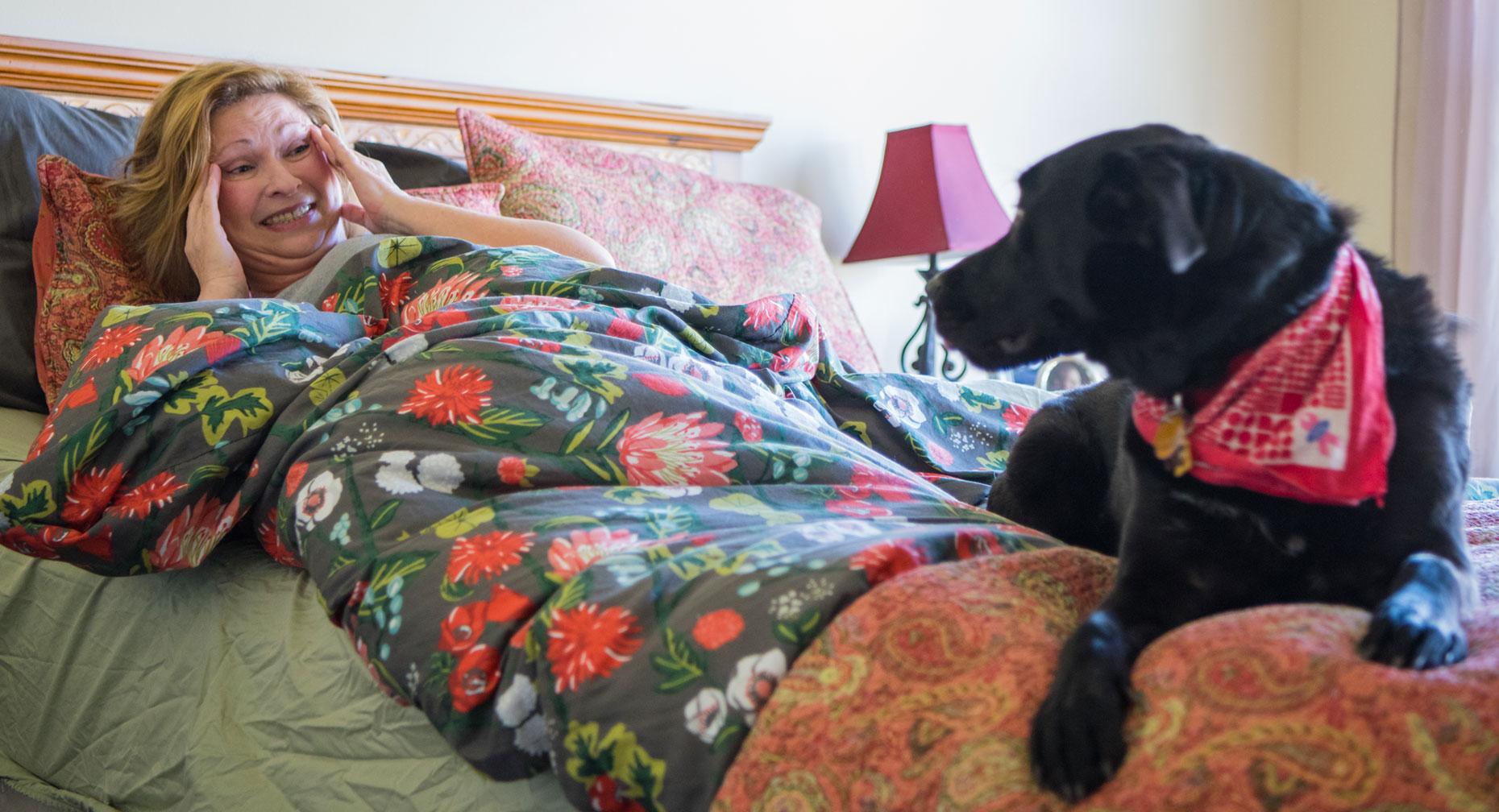Don’t Lose Sleep Over Allergies

Answer a few questions and we'll provide you with a list of primary care providers that best fit your needs.
Allergy sufferers have plenty to contend with: itchy eyes, runny nose, nasal congestion, sneezing, headaches. For many, there’s another problem on the list: sleepless nights.
Allergic rhinitis (nasal inflammation caused by allergies) can lead to blocked nasal passages. They can lead to snoring, or a more serious condition known as obstructive sleep apnea.
These problems can cause more than just a bad night’s sleep. Researchers found that allergic rhinitis can negatively affect sleep, and the more severe the allergic reaction, the worse the sleep problem.
Sleep disorders, especially sleep apnea, can greatly diminish the quality of life and lead to serious health problems. The effects can include:
- Fatigue and daytime sleepiness
- Decreased productivity at work, resulting in economic costs to the individual and society
- Struggles at school
- Increase in motor vehicle accidents
- Multiple health issues, including uncontrolled high blood pressure, heart failure, and weight gain
What Causes My Allergies?
Nasal passages can be irritated by two kinds of allergens — seasonal and perennial. Perennial allergens with us year round include dust mites, fungi, mold and animal dander. Seasonal culprits include pollen in the spring (mostly from pine trees), grass in the summer, and ragweed and moldy leaves in the fall.
Why Do Allergies Affect My Sleep?
When you sleep, your body naturally tries to breathe through the nose. But if your nasal passages are blocked with congestion, you’re forced to breathe through your mouth instead. This causes the soft structures in the back of your mouth (the uvula and soft palate) to vibrate, creating the sound of snoring.
Snoring alone is not a serious health problem, as it does not affect breathing. Snoring has not been proven to cause other medical conditions, and it is generally just a nuisance (especially to your partner).
Obstructive sleep apnea, on the other hand, can be serious. With this disorder, your breathing is often interrupted and sometimes briefly stops. This limits the oxygen that your brain and body needs.
What Do I Do if I Think I Have Allergies?
If you want to pinpoint the root of your sleep problems, and you suspect that allergies are the culprit, talk to your family physician or an otolaryngologist (a doctor who specializes in the ear, nose and throat, also referred to as an ENT).
Your physician may initially recommend over-the-counter drugs, if you haven’t tried these already. These medications break down into three main categories:
- Antihistamines, which block the effects of histamines (the compounds from allergens that cause allergy symptoms, like sneezing and itching). Examples are Allegra®, Claritin® and Zyrtec®.
- Topical nasal steroids, which work to reduce inflammation. Flonase® is one example.
- Leukotriene inhibitors, which reduce congestion and inflammation, as well as watery eyes, sneezing and itching. Singulair® is a common example.
If you continue to have problems, and your doctor has tested you for your response to specific allergens, he may recommend immunotherapy in the form of allergy shots. This long-term approach not only treats symptoms, but also addresses the cause of the allergy.
If you don’t respond to any of the above, your doctor may recommend surgery to reduce or eliminate portions of the interior of your nose, especially if you have recalcitrant nasal polyps. These benign, teardrop-shaped, translucent growths in your nasal cavity often result from nasal irritation. While they are almost always non-cancerous, polyps can obstruct your nasal passages and affect breathing.
Allergies don’t always lead to sleep problems. But regardless of whether they’re the root cause or one of several contributing factors, it’s important to work with your doctor to make sure they aren’t keeping you from getting a good night’s sleep.
Answer a few questions and we'll provide you with a list of primary care providers that best fit your needs.
Source: National Sleep Foundation; American Rhinologic Society; National Center for Biotechnology Information (National Institutes of Health)




